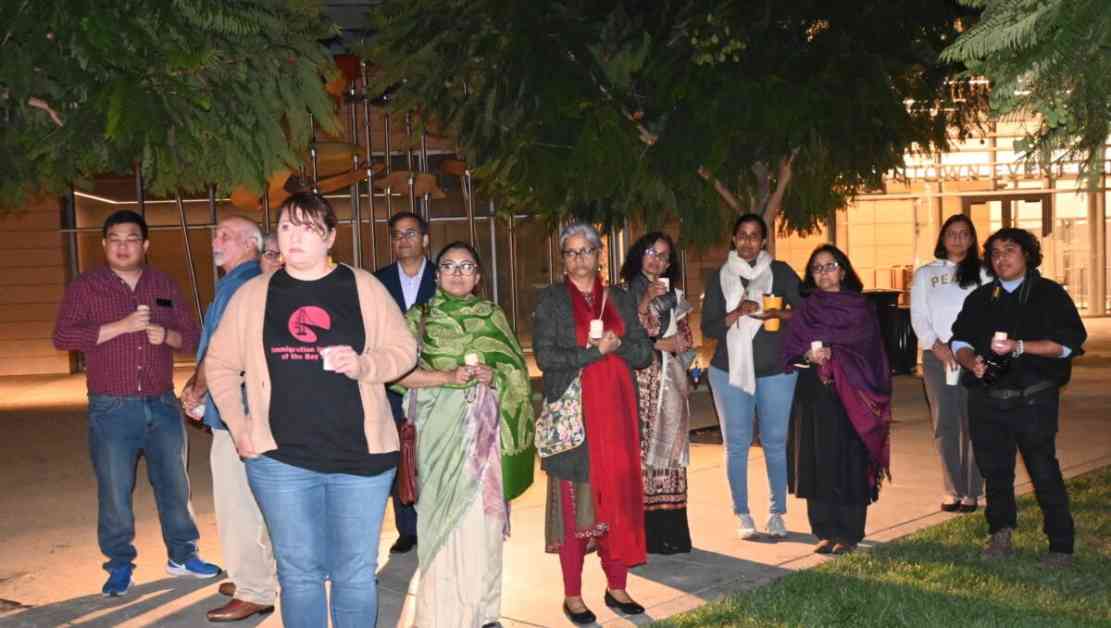Purple-clad women from four Bay Area-based organizations gathered together on the evening of Oct. 23 to draw attention to domestic violence. The vigil, which is an annual event, was jointly organized by Maitri, Narika, SAVE, and the North American Islamic Shelter for the Abused. Several survivors, including political leaders, spoke about the difficulty of leaving abusive relationships and the lack of resources available to those who needed to flee. It was noted that one in 3 women have faced intimate partner abuse in their lifetime.
Last year in California, 103 lives were lost to domestic violence, which was believed to be a massive under-reporting of deaths from intimate partner violence. California State Assemblymember Alex Lee spoke about the need to create safety nets for women and children escaping abusive situations. However, funding for organizations supporting victims of violent crime drastically dropped this year by 44.7%, leading to cuts in staff and services. The funds primarily come from the Victims Of Crime Act (VOCA), which has seen a steady decrease in funding.
These funds are crucial for supporting over 800,000 people in California, including survivors of domestic violence, rape, human trafficking, elder abuse, and child abuse. The lack of funding has also impacted homelessness, as women fleeing abusive homes often end up homeless. Additionally, incarceration is a common outcome for women who have been abused, as many lack legal resources and support to defend themselves.
The vigil also highlighted the difficulty in presenting evidence of intimate partner violence in court, leading to many abusers facing minimal consequences for their actions. The cycle of abuse is challenging to break, as shared by Fremont Vice Mayor Desrie Campbell and City Councilwoman Teresa Keng, who both have personal experiences with domestic violence in their families.
Afghan artist Nahid Aria shared the harrowing reality of women and girls facing violence in Afghanistan, where basic rights are denied, and victims are often blamed for their abuse. The emotional evening concluded with survivors reading a powerful verse emphasizing the interconnectedness of human suffering and the importance of empathy across languages and cultures.
The vigil in Fremont served as a poignant reminder of the ongoing prevalence of domestic violence and the critical need for increased support, resources, and legal protections for survivors. It highlighted the importance of community awareness and action in breaking the cycle of abuse and providing safety and justice for those affected.














